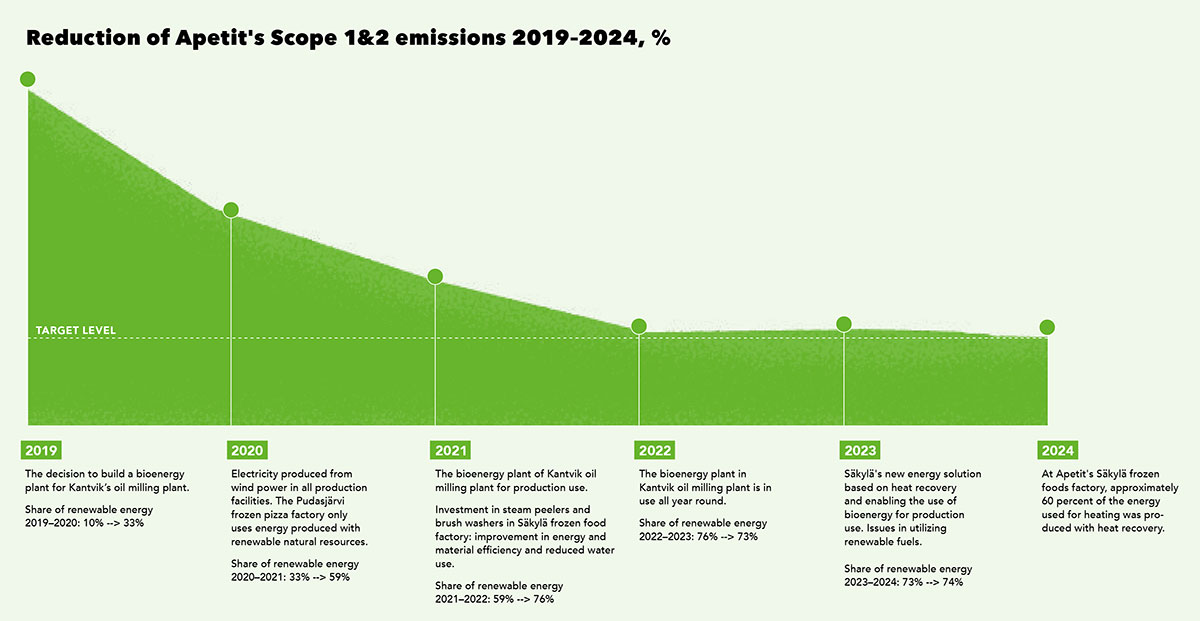Climate impacts
Apetit Group’s most significant climate impacts arise in the upstream of the company’s value chain. Apetit’s Scope 3 emissions represent over 97 per cent of the Group’s total emissions. The most significant emission category is purchased products and services. Most of the emissions in Apetit’s value chain are generated by the cultivation of food.
The other most significant emission categories in Apetit’s value chain include emissions arising from the use of sold products, including the computational food waste impact (2.7%) and upstream and downstream logistics (4.1%).
Apetit’s direct and energy indirect emissions (Scope 1 and Scope 2) account for 2.6% of the Group’s total emissions.
Reduction of climate impacts
One of the most significant ways to reduce emissions is the development of cultivation methods and harvest levels. For field vegetables, cultivation methods are developed through the responsible farming practices used by Apetit’s contract growers. Apetit is also involved in RypsiRapsi-foorumi, for example, which aims, among other things, to increase the harvest level of domestic oilseed plants and produce new cultivation information through experimentation. The development of cultivation methods, improving soil fertility through carbon farming methods, for example, and increasing crop levels represent concrete measures for reducing the carbon footprint of cultivation.
Emissions related to Apetit’s energy use have been reduced by deploying the Säkylä plant’s new energy solution based on heat recovery and enabling the use of bioenergy. All of Apetit’s production facilities have used wind power since 2020.
Apetit is committed to reducing its own emissions by 75 per cent by 2025, using 2019 as the baseline. By 2024, emissions had been reduced by 73 per cent compared to 2019. The reduction in emissions is mainly attributable to investments in the use of renewable energy. In 2024, 74 per cent of the energy used by Apetit’s production plants was produced from renewable sources. In 2019, the corresponding figure was 10 per cent.
The main ways to reduce the climate impacts of Apetit’s entire value chain are to develop cultivation methods and to increase harvest levels. To reduce emissions from its own operations, Apetit improves energy efficiency, for example.
Apetit’s 2024 annual report, published on March 13, 2025, contains an error in the reported location-based Scope 2 emissions. The correct location-based emissions are 1,228 t CO2-eq.
Location-based emissions are calculated geographically according to the average emissions of the electricity grid. Apetit’s emission targets are based on market-based calculation, i.e. actual procurement-based calculation.

